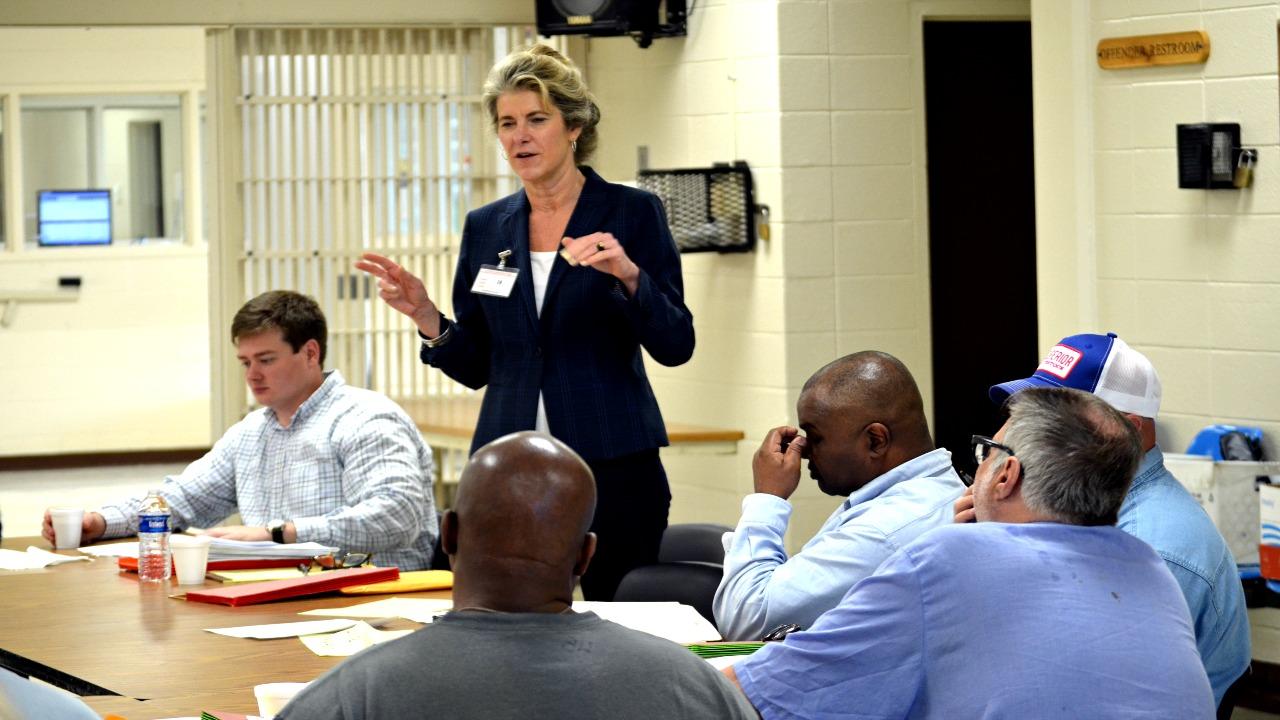Tulane Law students help train 'substitute' counsel
Those serving time in prison have no right to free legal representation after the conviction becomes final.
If they want to challenge the constitutionality of their conviction – such as arguing that their attorney was ineffective or that the prosecutor withheld exculpatory evidence – then they must represent themselves or find help elsewhere. In Louisiana, the Department of Corrections partners with Tulane Law’s Criminal Justice Clinic to provide training for inmates whose official job it is to serve as substitute lawyers for others in prison. Students offer trainings to those in state prisons.
“Once a person’s conviction is final, they are not entitled to a lawyer, and so they have to represent themselves or turn to an ‘inmate counsel substitute’ in order to argue that their conviction is unconstitutional or to raise other legal claims,” said Katherine Mattes, the clinic’s director. “The students prepare a lesson plan on a specific legal topic, such as ineffective assistance of counsel, and train the inmate counselors at various prisons."
Every year, Tulane clinic students have conducted trainings at Louisiana Correctional Institute for Women, Dixon Correction Institute, Elayn Hunt Correctional Center and Rayburn Correction Center, all prisons in southern Louisiana.
“My experience training the inmate counsel substitutes at Hunt was a humbling one,” said Ryan Niedermair (L’19), and a clinic student-attorney. “These men do whatever they can to help their fellow inmates, including teaching themselves very complicated areas of criminal law. I enjoyed helping them navigate some of the issues that they face and talking to them about how they can make their legal writing more effective.”
Explaining the law to these substitutes uses the same skills that students need to effectively explain complicated issues to judges and juries, said Mattes.
Clarity, organization and conciseness are all required when students are explaining the admissibility of forensic science to inmate counsel substitutes, or explaining to a judge why a specific science does not meet the threshold for admissibility.
Preparing and teaching inmate counsel substitutes not only provides the students with an opportunity to really learn a specific area of the law, they also get feedback on their ability to present complex information. The sessions are evaluated in writing following the training.
“This was helpful in showing me how to better use resources and the law to help my clients and argue my cases and understand experts and what should be expected by both counsel and defendant," wrote one inmate who took the course.
“What you are doing is much, much needed,” said another. “Please come more often!”

